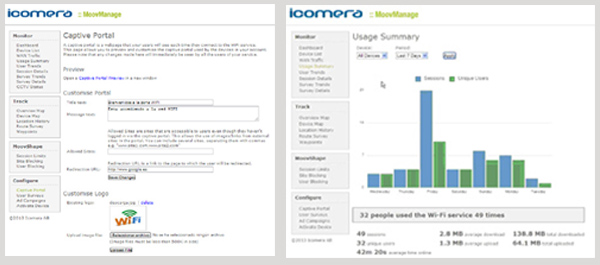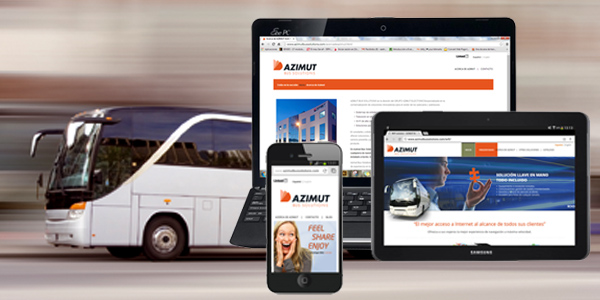How to avoid embarrassing situations when managing Wi-Fi on the bus
In previous articles we have talked about multiple issues related to the exploitation and management of the Wi-Fi network on the bus, but in this case we are going to fully delve into the risks and unwanted situations that can arise in the use of our wireless network.
Who is responsible for the Wi-Fi network on the bus?
To begin with, it is important to note that the owner is primarily responsible for the use of the Wi-Fi network on the bus. All traffic generated by passengers goes abroad through our router, this being the public face at first. For this reason it is important to inform the user of the policies of use and responsibility, so that he reads the conditions, understands and accepts them so that the same user is responsible for the use he makes of the internet during the time he is connected to our Wi-Fi network.
And how can we manage this transfer of responsibility?From theCaptive portalof our system, which is nothing more than a preconfigured page that appears just before the user starts browsing and in which we can indicate both our corporate image and personalized text fields in addition to the section of legal conditions of use that the user must compulsorily accept to be able to navigate.PFor this reason it is very important in the management of the Wi-Fi network on the bus that our system has this captive portal, since it is not only interesting at the corporate marketing level, but it is also essential to delegate responsibility for internet use. to the user himself.

What websites can passengers visit?
In managing the Wi-Fi network on the bus, it is also important to pay special attention to the websites visited by passengers during the journey. As we all know, a bus can be little or not at all appropriate to browse certain websites, either because it is content that is not suitable for public viewing or because we, as owners of the Wi-Fi system, "are not interested" in the use of certain type of websites.
When we use the term "we are not interested" we are referring mainly to websites that, due to the nature of their content, imply a high consumption of data. Let us remember that the entire Wi-Fi system is supported by telephone data lines and that these have a monthly limit of which we should not reach if we do not want to leave our bus without wifi service.
Some of these families of websites that are not recommended would be software update pages, video streaming pages or application download pages, among others. Any use of these pages by users would entail a large consumption of data, which is why it is important that our Wi-Fi network management system on the bus has mechanisms that allow access to this type of website to be blocked, which we can call “devourers”. of data". By preventing access to them, we will achieve:
- Better Wi-Fi service to the passenger, since there will be no users that hoard a large bandwidth, and our connection will be able to provide concurrent quality service to more users.
- Manage and control the consumption of our data lines that, as we have already mentioned, are limited to a certain number of Gigabytes per month.
Can I deny the connection due to misuse of the internet?
The answer is yes. If, despite having controlled and monitored the traffic, we have a user who is making inappropriate use of the Wi-Fi service, what can we do? In this case, it is important to have tools that allow us to deny the connection to our system of those users that we deem convenient. The Wi-Fi network management system on the bus must effectively prevent the connection by completely silently denying the user's device access to our Wi-Fi network.


